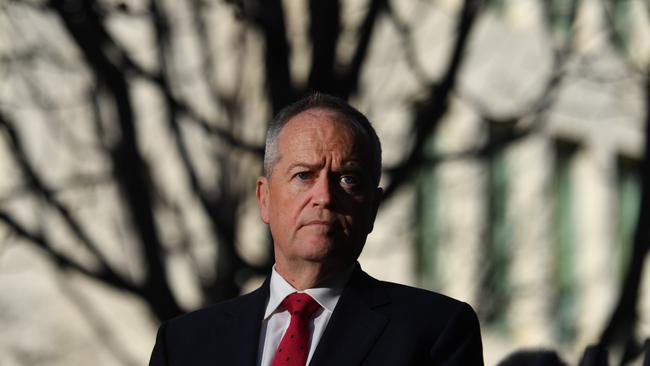Robodebt was cruel and it must not happen again

For four years this government sent debt collectors after vulnerable Australians, even as it emerged many of these “debts” were wrong or didn’t exist.
At least 734,000 robodebt notices were issued under a scheme that unjustly sought to artificially boost the budget bottom line.
During and in the immediate aftermath of this disgrace, the usual checks and balances of our system failed, and there is an active whitewash of what occurred.
Those who were midwives to this monster are now running the show — Scott Morrison and ministers Alan Tudge, Christian Porter and Stuart Robert.
Senior bureaucrats who unashamedly championed this scheme remain in position or have been promoted.
No one in power has admitted responsibility and there have been no consequences detailed for those who perpetrated the erroneous and unlawful racket.
This is how those in charge like it. And, with the exception of accidental outbreaks of truth courtesy of journalists and the ongoing class action against robodebt, this is how things will remain.
That is, unless there is an independent inquiry with teeth — a royal commission.
On one side of the ledger, we have power and misdeed without consequence.
On the other, we have the powerless victims — mothers grieving adult sons lost to suicide, and hundreds of thousands of Australians inflicted with the anxiety and disruption of a false debt claim wrongly alleged against them by their own government.
Labor does not believe in tolerating welfare fraud and does not oppose using data technologies to find anomalies in claims.
But that should be the starting point, not the end point.
Once an anomaly is detected, there must be human oversight and checking.
The robodebt scheme did not worry about any of that. It dispensed with all safety guards and human checks, and simply let an income-averaging algorithm loose on the Australian people.
Those who received robodebt notices did not feel they were being told: “We’ve spotted an inconsistency, could you give us more information?”
They were clearly given the impression they had to pay up or else.
The onus of proof was then flipped so those Australians were considered guilty until they could hunt down sometimes decade-old pay slips or records to prove themselves innocent.
As leading legal scholar George Williams wrote on this page recently, robodebt has become the “textbook example of how not to deploy technology in government decision-making”.
The scheme was a mongrel that hurt hundreds of thousands of innocent Australians who simply paid up money they did not owe or otherwise suffered the consequences.
What is worse is the government must have known its scheme was unlawful but pushed on with it simply to extract revenue from its citizens.
As early as March 2017, the Administrative Appeals Tribunal had found the robodebt scheme was not lawful — yet the government persisted. It was only in November last year, after increasing public notoriety, that the government finally jammed the brakes on the scheme.
And it was only last month the Prime Minister issued a qualified apology about his regrets.
The robodebt victims have yet to be paid back and many important questions remain.
What was the legal advice on robodebt? Was it bad advice? Was there no legal analysis done before this crude plan was unleashed? Or was good advice given and thrown in the bin?
How did the public service fail to react to the backlash from innocent Australians and early signs of illegality? Was there pressure from senior MPs to suppress any dissent?
When Labor has sought answers in parliament, the government has hidden behind defences such as public interest immunity.
We need a royal commission to cut through the cover-up.
We need to get to the ugly truth of what has occurred here and ensure that such a scourge on the public never occurs again.
A robodebt royal commission is strongly in the public interest and it is the right thing to do.
Of course, I don’t expect Morrison to roll over and grant a royal commission.
When I called for a banking royal commission in April 2016, Malcolm Turnbull, the prime minister at the time, and Morrison resisted it, voting against it 26 times until they capitulated in November the following year. Eventually the moral case for it was overwhelming.
So, too, with robodebt.
Australians deserve the truth.
Bill Shorten is opposition spokesman for government services and a former leader of the Australian Labor Party.



We need a royal commission into the robodebt scandal so we can get to the truth of what happened and ensure it never happens again.